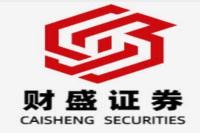Navigating the Choppy Waters: China-EU EV Anti-Subsidy Negotiations – A Deep Dive
Meta Description: China-EU EV anti-subsidy investigation, price commitment negotiations, trade friction, WTO rules, WTO dispute settlement, China's position, EU's stance, future outlook, expert analysis.
This isn't just another news recap. Forget dry summaries; we're diving headfirst into the complex, high-stakes negotiations between China and the European Union regarding electric vehicle (EV) anti-subsidy measures. This isn't some academic exercise – it's a real-world drama impacting billions of dollars in trade, thousands of jobs, and the very future of the global EV market. We’re pulling back the curtain on the intricacies of these negotiations, offering an in-depth analysis grounded in both expert understanding and the realities of international trade. Think of it as your backstage pass to one of the most significant trade disputes of our time. We'll unravel the tangled web of price commitment discussions, explore the underlying tensions, and dissect the potential outcomes. Prepare to be enlightened, perhaps even surprised, by the nuances of this geopolitical chess match. We'll equip you with the knowledge to understand the implications for businesses, investors, and consumers alike – because this isn't just about cars; it’s about the future of global trade and cooperation. Get ready for a gripping analysis that cuts through the jargon and delivers clear, concise insights. We'll examine the positions of both sides, explore potential resolutions, and consider the broader implications for the global economy. Buckle up; it's going to be a wild ride! This isn't just another news article; it’s a comprehensive exploration of a critical international trade issue. This is your one-stop shop for a thorough, unbiased, and expert perspective on the ongoing dispute. Get ready to explore the nitty-gritty, leaving no stone unturned in our quest for understanding.
China-EU EV Anti-Subsidy Investigations: A Complex Tango
The recent news briefing from China’s Ministry of Commerce (MOFCOM) highlights the ongoing tension surrounding the EU’s anti-subsidy investigation into Chinese electric vehicles. The core issue? The EU alleges that Chinese EV manufacturers benefit from unfair government subsidies, giving them an edge in the European market, which ultimately hurts European producers. This isn’t a new phenomenon; trade disputes, particularly those involving subsidies, are as old as international trade itself. However, the scale and significance of the EV market make this case particularly critical for the future of both economies.
The EU's actions are framed under WTO rules, specifically those related to countervailing duties – tariffs imposed to offset unfair subsidies. Navigating these rules is a notoriously complex process, requiring meticulous investigation and evidence-gathering. It’s a bit like a high-stakes legal battle, with each side meticulously presenting their case, hoping to sway the impartial judge – in this context, the WTO’s dispute settlement mechanism.
China’s stance, as articulated by MOFCOM spokesperson He Yongqian, emphasizes dialogue and negotiation. This is a common diplomatic tactic, suggesting a willingness to compromise and find a mutually agreeable solution. However, behind this seemingly conciliatory approach lies a firm defense of its policies. China argues that its support for the EV industry is aimed at promoting technological advancement and environmental sustainability, not at gaining an unfair competitive advantage. This is a crucial distinction, as the legitimacy of subsidies often hinges on their intended purpose.
The Price Commitment Conundrum
The current focus is on "price commitments," a mechanism where China might agree to limit the amount of subsidies provided to its EV manufacturers. This is a potential compromise, allowing the EU to avoid imposing full-blown tariffs while addressing its concerns about unfair competition. However, negotiating these commitments is a delicate balancing act. China needs to find a level that's acceptable to the EU without undermining its domestic EV industry's competitiveness. The EU, on the other hand, needs to ensure that the commitments are sufficiently robust to level the playing field. Failure to reach an agreement could lead to the imposition of tariffs, which would severely impact trade relations, potentially escalating into a full-blown trade war.
Understanding the Stakes: More Than Just EVs
The implications of this dispute reach far beyond the EV sector. A negative outcome could undermine trust and cooperation between China and the EU, affecting broader economic ties and potentially setting a precedent for future trade conflicts. The global EV market is incredibly dynamic, with intense competition and rapid technological advancements. The outcome of this dispute could significantly shape the global landscape of the industry, influencing investment decisions, production locations, and the overall competitiveness of different players.
The Path Forward: Navigating the Complexities
The future of the China-EU EV anti-subsidy negotiations remains uncertain. While both sides express a desire for a negotiated settlement, significant challenges remain. The core issue lies in reconciling differing interpretations of WTO rules and national interests. Finding a solution that satisfies both parties requires a high degree of diplomatic skill and political will. The involvement of third-party mediators or expert panels could facilitate the process, providing objective assessments and guidance. Ultimately, the success of these negotiations will depend on the willingness of both China and the EU to find common ground and make concessions.
A Look at the Bigger Picture: Global Trade Dynamics
This dispute underscores the growing complexities of global trade in the 21st century. The rise of new technologies, the increasing importance of emerging markets, and the growing interconnectedness of global supply chains all contribute to a more challenging and competitive environment. The traditional approaches to trade negotiations often prove insufficient in tackling the nuances of these new challenges. International cooperation and the effective enforcement of WTO rules are more crucial than ever to prevent escalating trade tensions.
Frequently Asked Questions (FAQ)
Here are some frequently asked questions about the China-EU EV anti-subsidy dispute:
Q1: What are the main concerns of the EU regarding Chinese EV subsidies?
A1: The EU is concerned that Chinese government subsidies give Chinese EV manufacturers an unfair competitive advantage in the European market, harming European producers. They argue these subsidies distort the market and violate WTO rules.
Q2: What is China's response to the EU's concerns?
A2: China maintains that its support for the EV industry is aimed at promoting technological advancement and environmental sustainability, not at gaining an unfair competitive advantage. They emphasize their commitment to dialogue and negotiation to resolve the dispute.
Q3: What are price commitments in this context?
A3: Price commitments are a potential compromise where China might agree to limit the amount of subsidies provided to its EV manufacturers, allowing the EU to avoid imposing tariffs while addressing its concerns.
Q4: What are the potential consequences if no agreement is reached?
A4: Failure to reach an agreement could lead to the EU imposing tariffs on Chinese EVs, significantly impacting trade relations and potentially escalating into a larger trade conflict. It could also damage the overall relationship between the EU and China.
Q5: What role does the WTO play in this dispute?
A5: The WTO's rules and dispute settlement mechanism provide the legal framework for resolving the dispute. Both sides can use the WTO system to argue their cases and potentially seek redress if they believe the other side is violating WTO rules.
Q6: What is the likely future outlook for these negotiations?
A6: The future remains uncertain. While both sides have expressed a willingness to negotiate, reaching a mutually acceptable agreement will require significant diplomatic efforts and compromise from both parties. The outcome will have significant implications for the global EV market and broader trade relations.
Conclusion: A Balancing Act
The China-EU EV anti-subsidy dispute represents a crucial juncture in global trade relations. The outcome will not only shape the future of the EV industry but also set a precedent for how countries address trade friction in a rapidly evolving global economy. Navigating this complex situation requires a careful balancing act, prioritizing both national interests and the need for international cooperation. The path forward demands a commitment to dialogue, a willingness to compromise, and a shared understanding that sustainable solutions are essential for the long-term health of the global economy. The future of this negotiation hangs in the balance, impacting not only the automotive sector but the broader landscape of international trade. Staying informed and understanding the nuances of this dispute is paramount for anyone involved in or affected by global trade.



